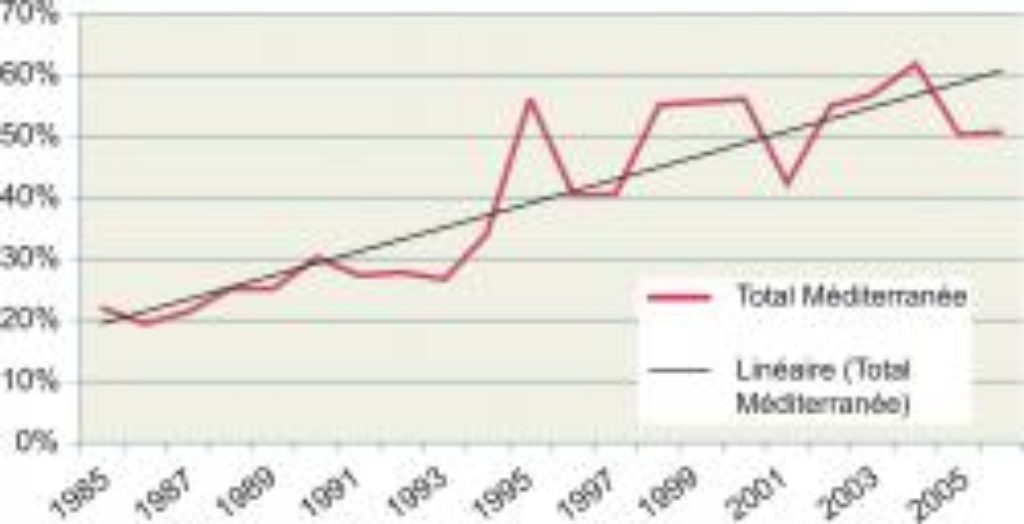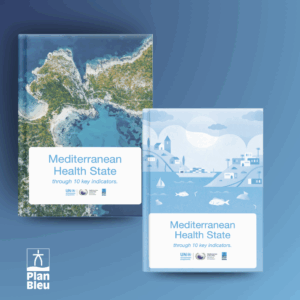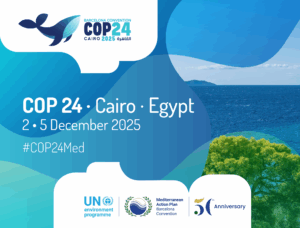
- Plan Bleu
Plan Bleu's missions
Make the Mediterranean a cooperation area for sustainable development
- themes
- projects
- Ressources
- publications
- Events
In the news
Last events
- Plan Bleu
Plan Bleu's missions
Make the Mediterranean a cooperation area for sustainable development

Providing socioeconomics insights for the appropriate management of Mediterranean resources

Facilitate a science – political and civil society interface

Supporting the transition towards a green and blue economy

Design possible futures for sustainable development

Observer of the environment and development to inform governments and the general public
- themes
- projects
- Ressources
- publications
- Events
In the news
Last events

Air transport and carbon dependency: future outlook for Mediterranean tourist destinations
Key figures
Evolution of air transport international arrivals in the Mediterraean: 23 % in 1988 (47 millions of tourists),
40% in 2005 (122 millions) Previsions of air transport international arrivals in 2015: more than 158 millions
Tourism impact on greenhouse gas emissions worldwide in 2008: 5% of total emissions, about 1,3 billion tonnes of CO2, air transport representing 40%
Changes in the share of air travel in international arrivals in the Mediterranean

How to reduce greenhouse gas emissions generated by air transport without compromising the development of destinations that are dependent on tourism?
Constant growth in tourism linked to air transport
Over the last twenty years, air transport has grown from a quarter of international arrivals in the late 1980s to more than half in 2006 (51%). The carbon issues around international tourist travel is a formidable challenge. How can the constant growth in air transport for tourist travel be reconciled with the goal of an 80% worldwide reduction of greenhouse gas emissions by 2050? Greenhouse gas emissions from tourist air travel in the Mediterranean remain much higher for inbound tourism. However, CO2 emissions from tourism transport will remain difficult to control, regardless of climate and energy planned scenarios and policies.
Mediterranean tourist economy highly dependent on air transport
The difficulty in controlling future CO2 emissions is mainly due to the importance of international clients to the Mediterranean tourism development model and the economic and demographic growth in the Southern and Eastern Mediterranean, which will mechanically increase demand.
The economic performance of mass tourism destinations, in particular island destinations, is directly dependent on air travel. For instance, the growth of tourism on the island of Djerba (Tunisia) over the last thirty years is directly linked to the development of air travel and the presence of Tour Operators: in 2008, 95% of flights to Djerba were charters organised by Tour Operators.
Proposals for adaptation
There are three possible ways to respond to the “carbon” issue, without jeopardising the economic performance of tourism:
- Optimising the passenger load factor of each aircraft or increasing the average length of stay,
- Promoting a more extensive and better-integrated transport offer meshing air travel with other modes of transport,
- Developing domestic tourism, mainly in South and east Mediterranean countries.
Publications
News
Subscribe to the newsletter
Subscribe to Plan Bleu’s newsletter to stay updated



-
Plan Bleu
Tour la Marseillaise
2 bis, Boulevard Euroméditerranée
Quai d'Arenc
13002 Marseille - France - [email protected]
- +33 (0)6 43 08 20 23







